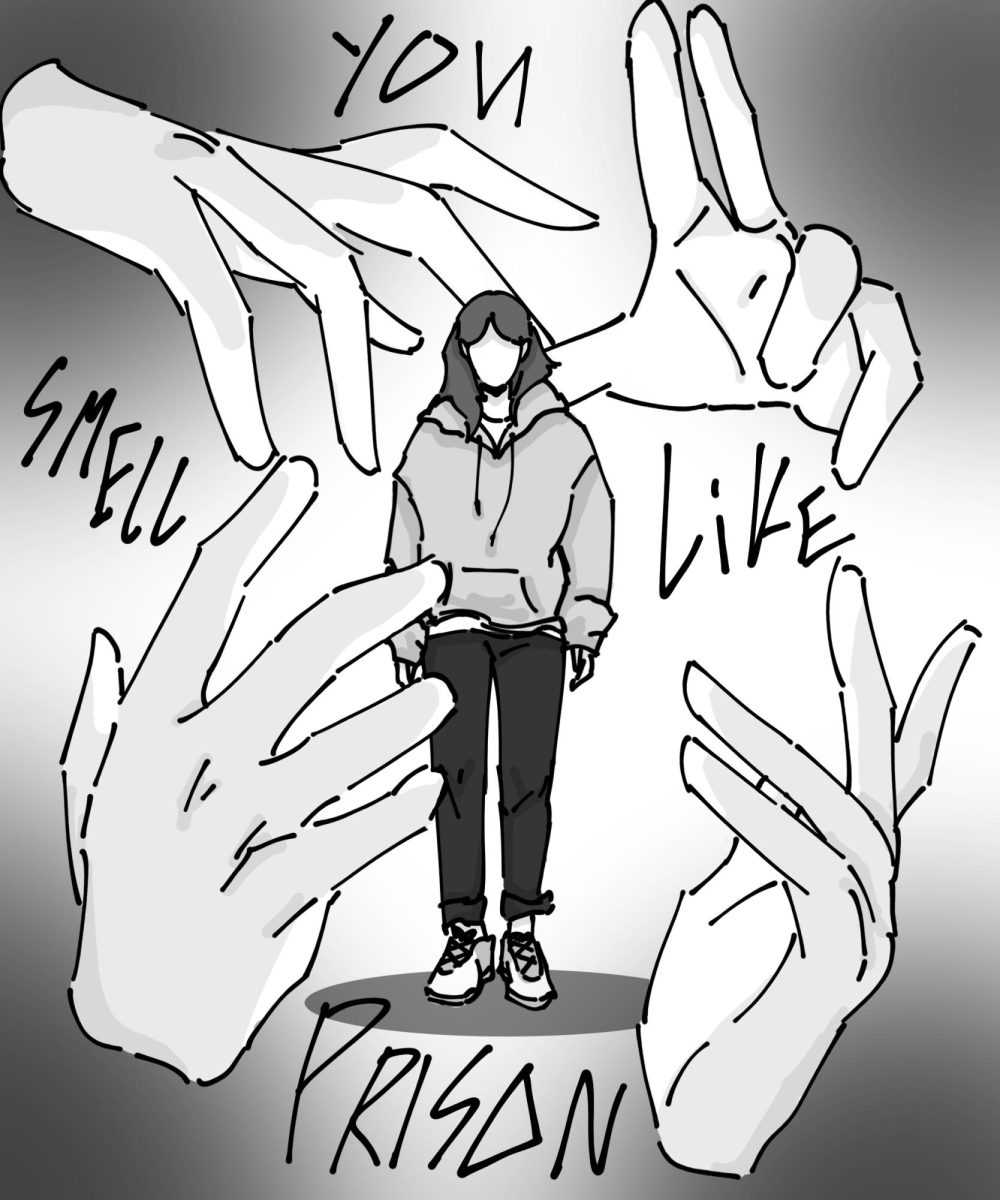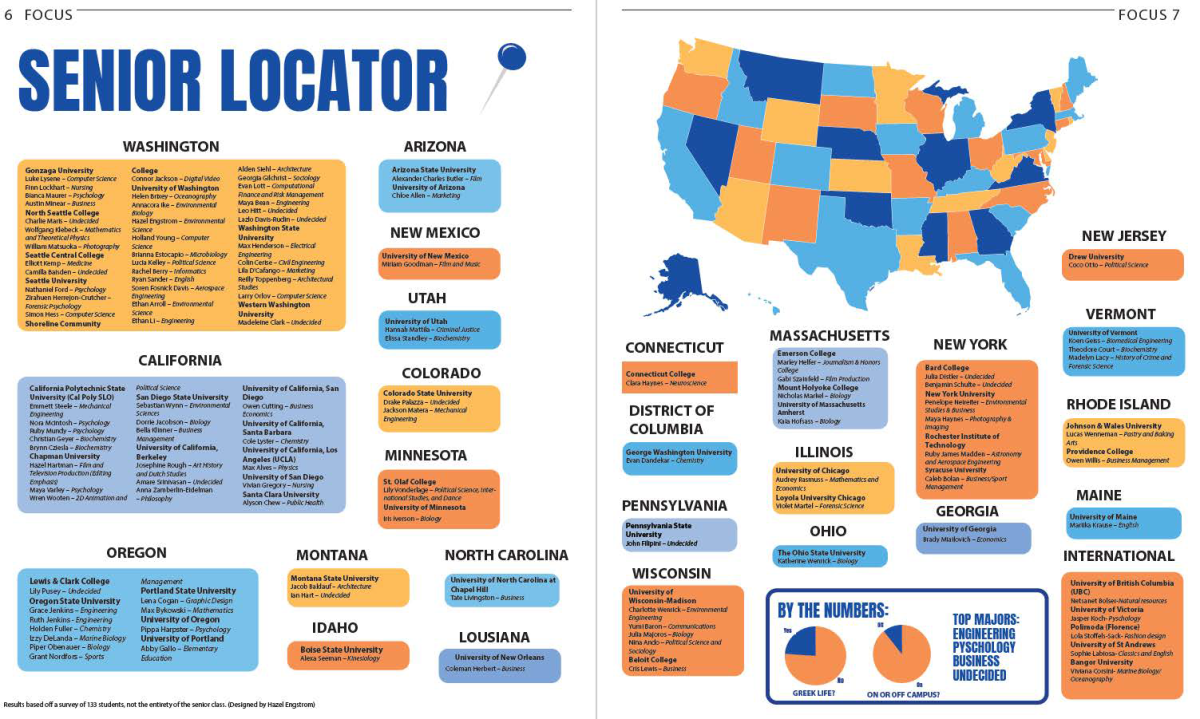It’s inferable that in a workplace, where conduct is (or should be) monitored and regulated, fighting against harassment, the comments, sly remarks and hovering hands, would be simple. Inversely, it’s easy to get stuck.
Workplace harassment is unfortunately a common experience. According to the National Sexual Violence Resource Center (NSRVC), a 2016 study showed 60% of women report they had experienced “unwanted sexual attention, sexual coercion, sexually crude conduct, or sexist comments in the workplace.”
And despite further laws protecting minors from sexual misconduct, it is shown statistic after statistic that age doesn’t change the numbers. In a study done by the American Association of University Women (AAUW), 48% of students grade 7-12 reported they had experienced any form of sexual harassment.
Not to mention that according to a 2022 National Public Radio (NPR) article, an approximate 70% of female restaurant employees in the United States had been sexually harassed at work, the industry that most high school students, like myself, begin working in.
I got a job as a server like many of my classmates, expecting to meet new people, spill a couple glasses of water, and learn. A few months in, one of my coworkers began making subtle comments expressing an interest in me past being work friends.
In talking to an anonymous student and food service worker, I found someone with some similar experiences that I was going through.
“My coworkers will call me names and touch my hair,” said the student. “But at a certain point they’ll tell me I smell like prison. Because I’m 17.”
The world would be a mile safer if his revelation that he’s been hitting on a minor stops him in his tracks, but for many girls, including me, this has not been the response.
He asked me how old I was and with the naive thought of protection in mind I said, ‘I’m 17’, and he physically backed away. Though it was soon made clear that his mind never changed and the effects of being labeled illegal wore off just enough for him to feel comfortable grazing his hand on my waist as he walked by, calling me names and looking up my birthday in company records.
And after trying to reach out, say, commenting to my boss about ‘an older guy’ who’s been treating me this way and hearing in response, ‘I married a 30-year-old at 18, age doesn’t matter,’ the idea of fighting against it feels more impossible, and even unwarranted.
Gripping at last hopes to keep a more stable mindset and safe workplace, I reached out to a couple of my coworkers, seeing what they thought I should do. They told me that it was my fault for ‘leading him on,’ that I should stop giving him the chance to talk about me like that.
It is often that we hear these comments and look back on ourselves as the problem, then worrying that coming forward would be overly sensitive and only backfire on you, especially when the first, second, third attempts do fail.
“I have told my coworkers multiple times to stop talking to me like that, and the response is not a change in the way they talk to me, it’s a change in their attitude,” said the student. “They would not talk to me, they would not communicate with me, which only makes the shift harder for me and everyone.”
That’s the thing that further complicates harassment in these types of establishments, where there are specific or assumed avenues to take, the implications to coming forward are much higher making it feel easier to just live it through.
In the 2016 study by the NSRVC referenced above they additionally revealed that approximately 70 percent of employees who experienced workplace harassment never filed an internal complaint. And in a workplace, especially the service industry, it’s hard for one to avoid their coworkers, leaving quitting as the only obvious alternative option which many people can’t or don’t want to do.
For me, the job was a place I loved, the people, mostly, were people I loved, the work was work I loved. I did not want to leave the job. So, I waited it out, rolled with the punches, and as a Stockholm Syndrome effect (developing positive feelings towards one’s harasser or abuser) began to take over, the comments started to consume my sources of recognition and confidence.
It got to the point where the constancy of only feeling valued as a target of these comments infested my own self image, something that can be referred to as the Sexual Objectification Theory, originally proposed by Barbara Fredrickson and Tomi-Ann Roberts in 1997.
The theory postulates that repeated exposure to sexual harassment and objectification leads to an internalized view of women’s own bodies and beings. Studies have backed the theory, such as in the “Examination of the contextual determinants of self-objectification” by Psychology of Women Quarterly in which exposure to catcalling and sexual harassment was directly correlated to self-objectification, increased anxiety and struggles with body image.
“Over time, work became the one secure place I felt validated,” said the student. “When they call me these names and compliment me, I know at least that I am noticed.”
Further encroaching on one’s self-image more and more, what’s left is the fight to preserve whatever of you remains. In making a semi-unconscious effort to do so, I decided to bring my own flame to the fire.
“I can feel shame for putting myself in the line of fire of these comments, but receiving them for just being who I am begins to instill that I am only what they say I am,” said the student.
Having that upper hand plays the illusion of saving the part of you that hasn’t yet been lost. Though this strategy is heavily judged upon, after so much dehumanization, taking back some control, like the student mentioned, kept me from internalizing that I am just the girl he said I was: the intoxicating, made to be beautiful, ‘quiet but dangerous’ girl.
And of course there’s a part of me who’s ashamed of myself for taking on that tactic, thinking maybe I was ‘asking for it,’ but I’ve come to learn now that these feelings, they’re common.
But the game doesn’t go on forever. I turn 18 this month, and amidst excitement and plans to get my first tattoo there is also the possibility of fear.
“The negative that comes from accepting this mechanism is in not knowing when to stop,” said the student. “If you let yourself enjoy so much and so much and so much, you begin to feel in control and soon you won’t know when or how to say no. And there will come a moment when you’re no longer smelling like prison, a moment when your age can’t say no for you.”
Currently performing the balancing act between the past and the future myself, stuck in the confusion and frustration that is figuring this all out, I do not have the answer. At least not yet.
That being said, I share these stories and feelings and thoughts because if there are others who may feel the same, I want them to know that they aren’t alone. As unfortunate as it is the numbers of people who experience harassment and how consuming it gets, I needed to see that it was not just me.
I share because it is all too common for people to feel stuck to the harassment, adhering to damaging coping mechanisms in the absence of others. And although I do not know the answer, if there even is a single one, I hope that together we can help future youth find other ways through and that one day there will no longer be a need for an answer.


























